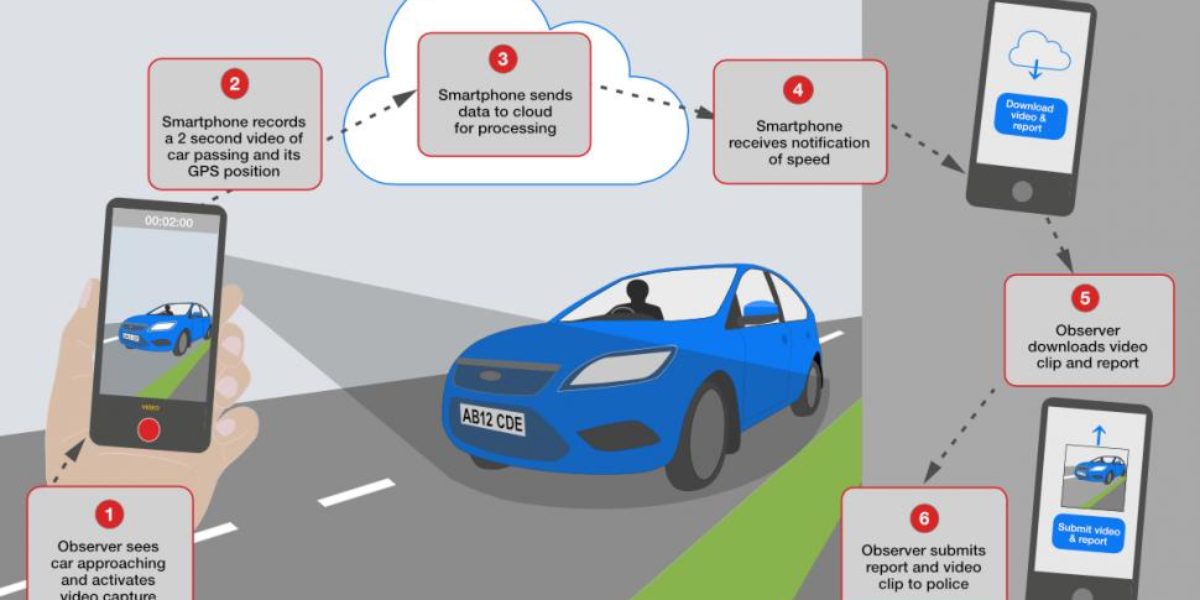Does speeding app work
New app to help the public catch speeding motorists called into question
New smartphone app for helping catch speeding drivers is attracting professional concern.
Police forensic video analysis experts say it needs proper accreditation to back up its claims.
Eyes on you
The SpeedCam Anywhere app allows pedestrians to use their smartphones when gathering evidence of speeding vehicles. The idea is that it provides a simple way for pedestrians and others to record and identify potential speeders. This can then be used as evidence by police forces to track down and penalise speeders without being on the scene.
SpeedCam takes a short video clip of a passing vehicle which is uploaded to the Artificial Intelligence (AI) server. It claims that the server can ‘measure the vehicle speed from the video, check vehicle speeds against speed limits, and provide a report showing evidence of the vehicle speed, as well as generating road safety reports and identifying speeding hotspots.’
Accurate proof
However, Road Safety Support, which provides expert forensic video analysis to multiple UK police forces has concerns.
Forensic Engineer, Steve Callaghan, at Road Safety Support believes a “proof-of concept test” is needed. Only then can the apps claims of valid and accurate measurement be trusted.
“We think that this concept is based on what is, in part, a sound principle. However, we feel that before any approval is given to it or it is used by the police, that a proof-of-concept test is performed to demonstrate the system and its capabilities.
“Currently, there is an apparent gap between the technology and the law. The speed calculation needs to be proven on every occasion because of the way the application assumes that the unknown mobile telephone it is used on is working correctly.
“From my understanding of the measurement technique and the intended deployment on multiple phones, Home Office Type Approval would be challenging.”
Helping out
Road Safety Support is a not-for-profit company committed to reducing deaths and injuries on the roads. It does this through the effective use of accurate and reliable road traffic enforcement technology. They are though to be the only accredited speed calibration laboratory of its kind in the world. They test and calibrate speed cameras, speedometers, telematics and other speed measurement devices anywhere in the world.
The vast majority of UK police forces are members of Road Safety Support and receive specialist technical and legal advice. Highway authorities and safer roads partnerships internationally also utilise the services on a subscription basis.
Their chairman, Meredydd Hughes says “Artificial Intelligence offers great potential for increasing road safety”. It can provide “wider enforcement’ options, “as well as for more active traffic management generally”. However, “for the public to accept that prosecutions are fair, they need to know that the equipment is accurate and being used correctly”.
New challenges
Modern technology and evolving society comes with the challenges of modernity. Hughes cites the example of e-scooters as another area that is testing authority and legal frameworks. They challenge the existing rules and regulations of road use, and “the introduction of new technology is challenging enforcement standards”.
While involving the public and allowing them to help record offences has great potential, “the police need more capacity and the skills to deal with this material effectively and ensure that prosecutions are based on accurate evidence”.






